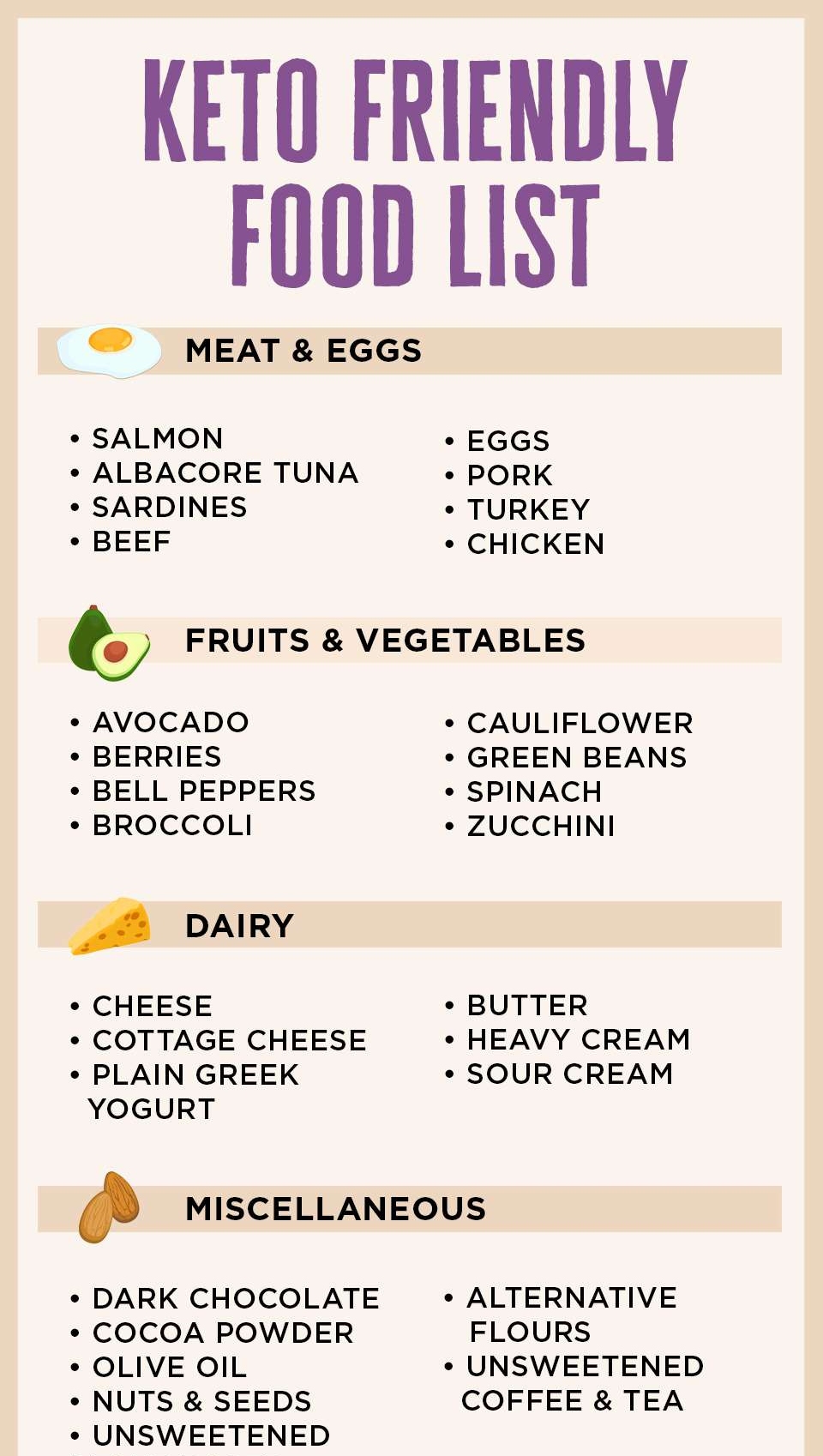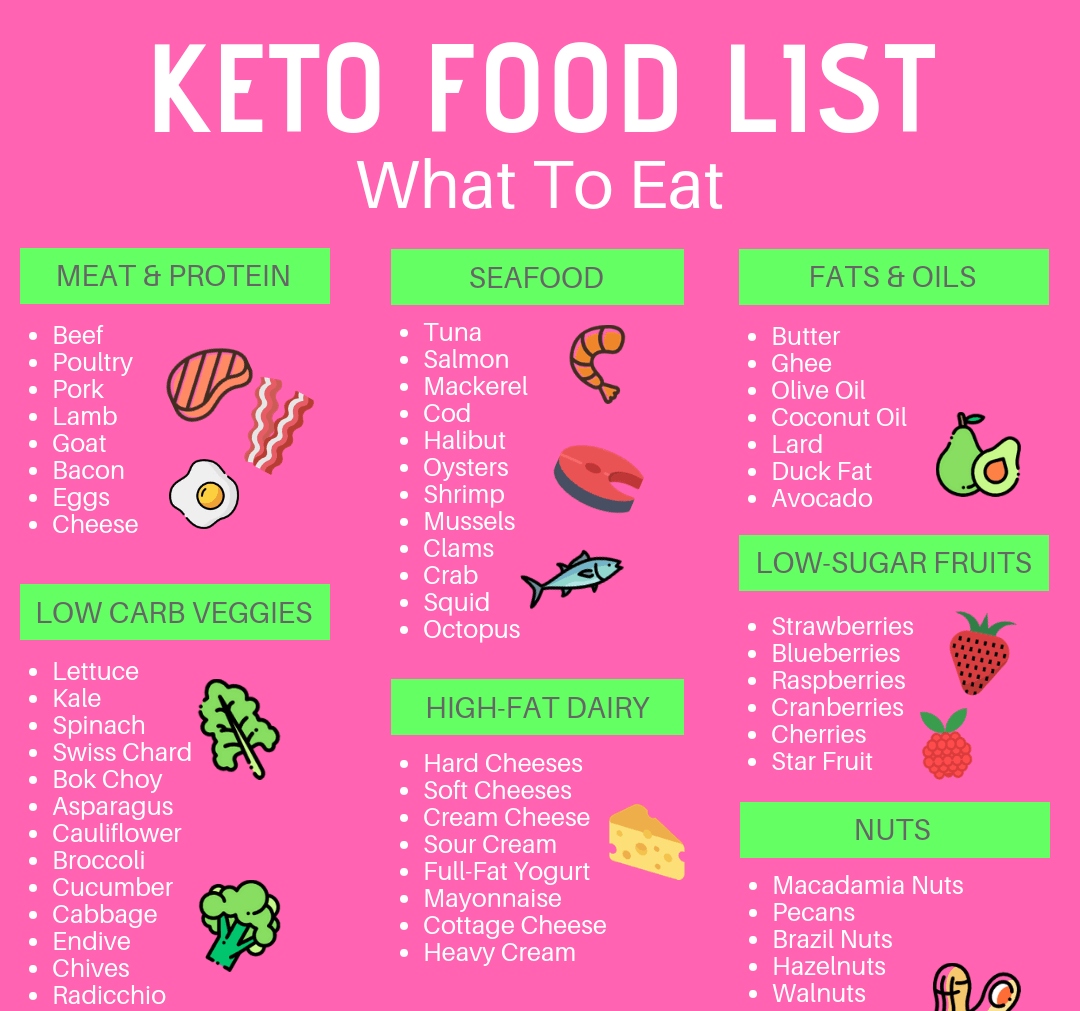Keto Diet Basics - Incorporating Ketogenic Eating Into Your Routine
Discover the keto diet basics: principles, benefits, and practical tips for success.
Author:Katharine TateReviewer:Karan EmeryFeb 16, 20244.7K Shares67.6K Views

The ketogenic (keto) diet has gained popularity in recent years for its potential to promote weight loss and improve certain health markers. This low-carbohydrate, high-fat diet aims to induce a state of ketosis, where the body shifts from using glucose as its primary fuel source to using ketones derived from fat. So, what are the keto diet basics?
Understanding the keto diet basics, including its principles, potential benefits, and practical considerations, is essential for those considering adopting this dietary approach.
What Is The Keto Diet?
The keto diet is a high-fat, low-carbohydrate eating plan designed to drastically reduce carbohydrate intake and replace it with fats. By restricting carbohydrates, the body enters a state of ketosis, where it begins to break down fat for fuel, producing ketones as a byproduct. This metabolic shift can lead to rapid weight loss and other health benefits.
The Atkins and low-carb diets are comparable to the ketogenic diet in that they are both extremely low in carbohydrates and rich in fat. It entails cutting back on carbohydrates significantly and substituting fat for them. When you cut back on carbohydrates, your body enters a metabolic state known as ketosis.
Your body becomes extraordinarily adept at burning fat for energy when this occurs. Additionally, it causes fat to be converted into ketones in the liver, which the brain may use as fuel.
Blood sugar and insulin levels can drop significantly when following a ketogenic diet. This has several health advantages in addition to the elevated ketones.
Principles Of The Keto Diet
The fundamental principle of the keto diet is to significantly reduce carbohydrate intake while increasing consumption of healthy fats and moderate amounts of protein. Typically, the macronutrient breakdown of the keto diet is as follows:
- Carbohydrates -5-10% of total daily calories
- Protein -10-20% of total daily calories
- Fat -70-80% of total daily calories
Foods that are commonly consumed on the keto diet include meat, fish, eggs, cheese, nuts, seeds, avocados, and healthy oils such as olive oil and coconut oil. Meanwhile, high-carb foods like grains, sugary snacks, fruits, and starchy vegetables are limited or avoided altogether.
What Do I Eat On The Keto Diet?
The ketogenic diet comes in various forms, and the one you follow will determine what you consume. Among them are:
- The standard ketogenic diet (SKD) consists of a high-fat, moderately-protein, and extremely low-carb diet. Usually, it has 10% carbohydrates, 20% protein, and 70% fat (9Trusted Source).
- The cyclical ketogenic diet (CKD) alternates two days of high carbohydrate eating with five days of ketogenic eating.
- You can increase your intake of carbohydrates in relation to your exercise in the Targeted ketogenic diet (TKD).
- Similar to a conventional ketogenic diet, but with additional protein, is the high-protein ketogenic diet. Typically, the ratio is 35% protein, 5% carbohydrates, and 60% fat.
Only the conventional and high-protein ketogenic diets, meanwhile, have undergone substantial research. Bodybuilders and athletes are the main users of cyclical or targeted ketogenic diets, which are more sophisticated approaches.
Potential Benefits Of The Keto Diet
- By reducing carbohydrate intake and promoting fat burning, the keto diet can lead to significant weight loss, particularly in the initial stages.
- Some research suggests that the keto diet may help stabilize blood sugar levels and improve insulin sensitivity, making it beneficial for individuals with type 2 diabetes or prediabetes.
- Supporters of the keto diet claim that ketones produced during ketosis can provide a steady source of energy to the brain, leading to improved cognitive function and mental clarity.
- Some studies indicate that the keto diet may have therapeutic potential in managing conditions such as epilepsy, Alzheimer's disease, and certain types of cancer.
Is Losing Weight Possible With The Keto Diet Plan?
Proponents of the keto diet claim that you can lose a lot of weight in a short amount of time, which is one of its main selling features and the main reason it is so popular. Is that, however, too good to be true?
According to a number of studies, including one that was published in the Journal of Strength and Conditioning Research in 2018, losing weight while maintaining an athletic diet low in carbohydrates—such as the keto diet—may be possible. Sounds promising, doesn't it? It's unclear whether weight loss is sustainable over the long term, which is why it's only beneficial when it occurs.
According to a 2020 Cureusstudy, those who followed the ketogenic diet may have lost weight and shown improvements in their levels of good (HDL) cholesterol, triglycerides, blood pressure, and other markers. Nevertheless, these gains did not continue after a year, indicating that longer-term research is necessary to verify the diet's efficacy.
Practical Considerations
While the keto diet offers potential benefits, it's essential to approach it with caution and consideration of individual needs and preferences. Here are some practical tips for adopting the keto diet:
- Ease into the keto diet by gradually reducing carbohydrate intake over several days to minimize symptoms of carbohydrate withdrawal, often referred to as the "keto flu."
- Drink plenty of water and replenish electrolytes, such as sodium, potassium, and magnesium, which may be lost as the body adjusts to ketosis.
- Some individuals may choose to monitor their ketone levels using urine, blood, or breath tests to ensure they are in ketosis.
- Focus on consuming a variety of nutrient-dense foods to ensure adequate intake of vitamins, minerals, and other essential nutrients.
- Consider the long-term sustainability of the keto diet and how it fits into your lifestyle, preferences, and health goals.
Keto Diet Basics - FAQs
What Are The Basic Rules Of The Keto Diet?
A medium plain bagel contains less than 50 grams of carbohydrates per day, while the ketogenic diet can lower intake of carbohydrates to as little as 20 grams. Popular ketogenic publications generally recommend consuming 70-80% fat from total calories, 5-10% carbs, and 10-20% protein on average each day.
What Foods Can I Eat On A Keto Diet?
On a keto diet, you can eat foods like meat, fish, eggs, cheese, nuts, seeds, avocados, and healthy oils like olive oil and coconut oil.
Can I Eat Fruits On A Keto Diet?
Fruits are generally limited on a keto diet due to their high carbohydrate content. Small portions of low-carb fruits like berries may be included occasionally, but higher carb fruits should be avoided.
How Long Does It Take To Enter Ketosis On A Keto Diet?
The time it takes to enter ketosis can vary from person to person but generally takes 2-7 days of restricting carbohydrates to around 20-50 grams per day.
Are There Any Side Effects Of The Keto Diet?
Some people may experience temporary side effects when starting the keto diet, such as fatigue, headache, and dizziness, often referred to as the "keto flu." These symptoms usually subside within a few days to a week.
Is The Keto Diet Safe For Everyone?
The keto diet is generally considered safe for most healthy individuals. However, it may not be suitable for everyone, such as those with certain medical conditions or pregnant or breastfeeding women. It's essential to consult with a healthcare professional before starting any new diet.
How Does A Beginner Start Keto?
strategy entails keeping daily carbohydrate intake to 20 to 50 grams and consuming plenty of fats from foods like meat, fish, eggs, nuts, and healthy oils. It's crucial to control your intake of protein.
Is Milk OK For Keto Diet?
Cow's milk is not appropriate for a ketogenic diet since it contains a lot of lactose, a form of carbohydrate. For many people, milk and other dairy products are staples in their diets. You could like adding cream cheese to savory pasta dishes, sprinkling milk on your cereal in the morning, and blending sweet creamer into your coffee.
Conclusion
The keto diet is a low-carbohydrate, high-fat eating plan designed to promote weight loss and improve various health markers by inducing a state of ketosis. By understanding the keto diet basics, including its macronutrient composition and potential benefits, individuals can make informed decisions about whether it's the right dietary approach for them. However, it's essential to approach the keto diet with caution and consideration of individual needs, preferences, and long-term sustainability.

Katharine Tate
Author
I’m a native of Massachusetts, where I earned bachelor's degrees in Health, Science, Society, and Policy and Sculpture from Brandeis University. I enjoy assisting and inspiring women in all aspects of their lives, and I consider myself a partner in their OB an GYN treatment. I particularly enjoy forming relationships with young women and assisting them in determining their healthcare needs and goals. I love to travel, create metal and fiber art, cook, and spend time outside. Also, I’m fluent in both German and American Sign Language.

Karan Emery
Reviewer
I'm a research scientist interested in learning more about how neural activity influences and shapes human behavior. Project design and management, data analysis and interpretation, and the creation and implementation of testing tools are among my specialties. I enjoy coming up with new ideas and coming up with practical solutions to issues that are widely applicable. My colleagues would describe me as a driven, resourceful individual who maintains a positive, proactive attitude when faced with adversity. Currently, I’m seeking opportunities that will allow me to develop and promote technologies that benefit human health. Specific fields of interest include data analytics, biotechnology, and pharmaceuticals.
Latest Articles
Popular Articles

